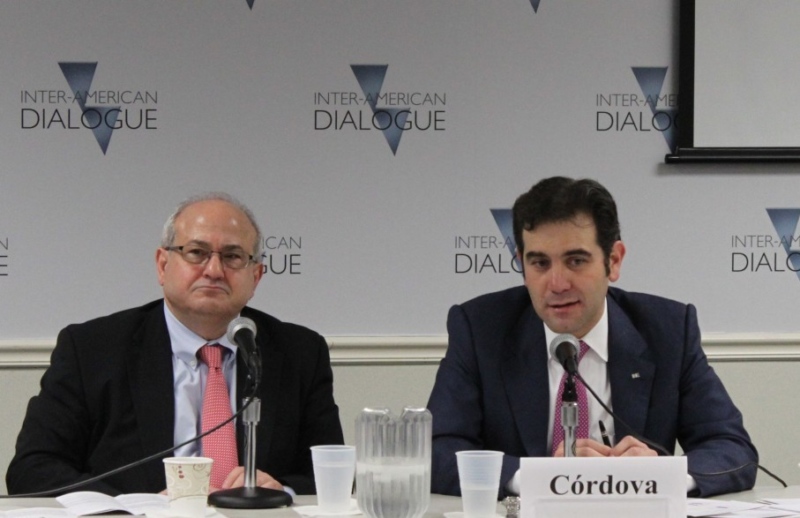A Conversation with Lorenzo Córdova
 Murat Dagli / Inter-American Dialogue
Murat Dagli / Inter-American Dialogue
On June 7th, Mexico had its first election overseen by the National Electoral Institute (INE), which replaced the Federal Electoral Institute (IFE) under the new electoral law passed in 2014. The electoral reform included important changes in the structure of electoral authority, regulation of candidates and political parties, such as the restrictions on senators and governors to seek continuous reelection, opportunities for voters such as voting from abroad, and new coalition requirements. This reform was key to the election results, which at a first glance were as expected, with the Partido Revolucionario Institucional (PRI) taking the relative majority, the Partido de Acción Nacional (PAN) trailing behind, and the left-wing Partido de la Revolución Democrática (PRD) in third place. However, a closer look into the results reveals insights into the current dissatisfaction towards large political parties.
Lorenzo Córdova, head of the INE, started the conversation by addressing the key elements of the electoral reform, which, he expressed: “grants INE power over the application of the law”. INE is now in charge of appointing local electoral authorities, which were formerly appointed by state congresses. This allows INE to enforce a more standardized practice of electoral process at the local level and creating more efficient cooperation at the regional level, as well as avoiding corruption and mismanagement of elections.
The INE now has the power to invalidate the results of an election if the limits on campaign finance or campaign propaganda are exceeded as long as the violation was “systematic” and “determinant to the election results”, although many criticize that these criteria are too vague. However, although the INE’s autonomy and centralized power seems to have been strengthened through the reform, the Institute still has the difficult task of changing public perception towards electoral authority to a more positive one.
Córdova considers that the past election was “the greatest in Mexico’s democratic history.” The turnout was decent for a midterm election- about 48% of the registered population went out to vote in all of the countries’ 300 districts. It also brought many changes in the structures of state legislatures, particularly since voters chose not to support the biggest parties in key voting districts. Some of these elements include the 6% increase in the number of elected women, the important victories achieved by independent candidates, and the fact that no political party had more than 30% of the votes, to which Córdova commented: “elections are the privileged way to manage plurality”.
With regards to the incidents of civil unrest in Mexico in the last months, Córdova argued that “unrest in México is not general but territorialized” and, therefore, did not affect the national outcome of the election. Of a total of 148,000 polling stations, only 185 were affected by civil unrest.
The INE, however, has been under constant criticism for not properly applying sanctions to political parties that break electoral law. Córdova responded to this by saying that “it´s natural that a referee is under pressure by political parties to advance their agendas but the real problem comes when the referee cedes to the pressure”. During this election the Green Party was heavily fined for breaking electoral law, making it the party with the most penalties in any single election. He also stressed the importance of the demands for accountability from all sectors of society in order to maintain partiality in the electoral process.
The conversation with Lorenzo Córdova provided a very important perspective from the side of the INE in order to make a thorough assessment of the latest elections and the effect the electoral reform has had in the electoral and political climate. Having a strong and independent electoral body is key to maintaining a strong democracy. Although México still faces an important lack of representation issue, the electoral reform and INE have given the country better tools and procedures to tackle election challenges going forward.



















